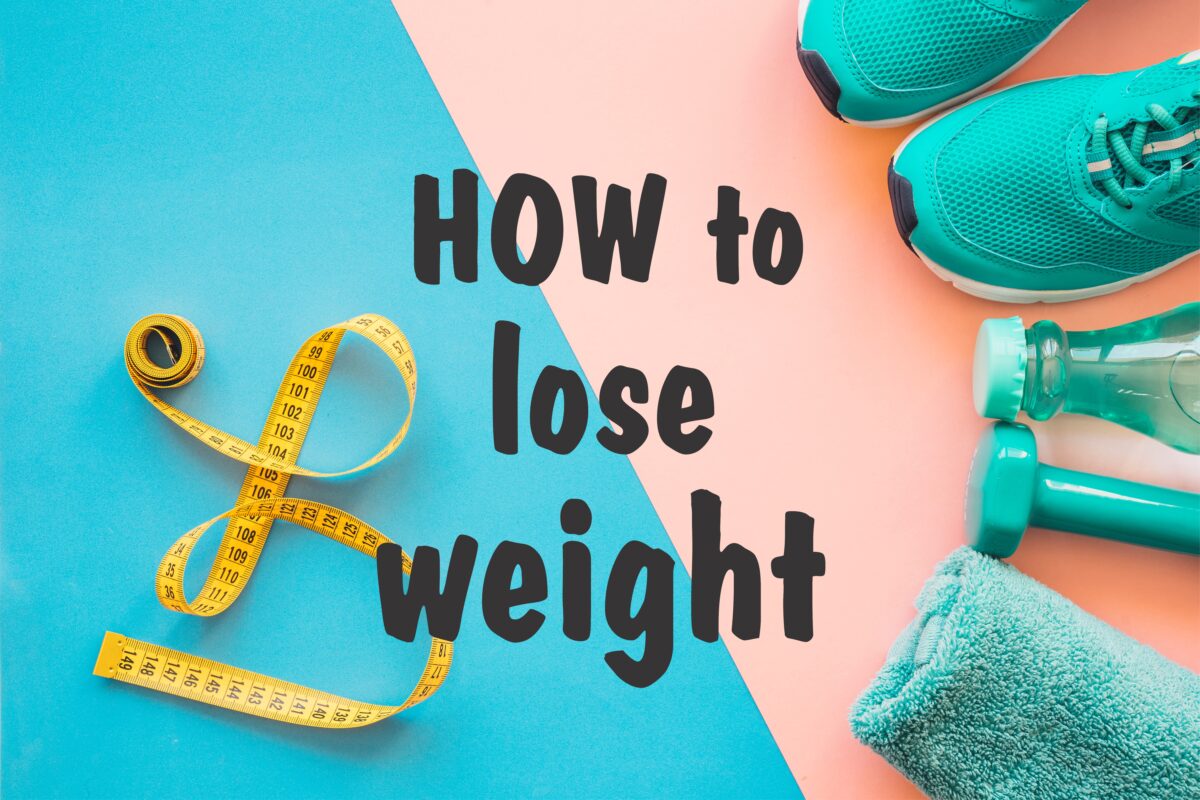No products in the cart.
Reviews
Why Can’t I Lose Weight? – A Roadmap to Successful Weight Loss

Table of Contents
Do you often find yourself grappling with the frustrating paradox of putting in effort but not seeing the numbers on the scale budge? You’re dedicated to your diet and exercise routine, yet those extra pounds seem stubbornly attached. Success stories abound, but there are countless others left bewildered despite seemingly nailing the formula – a balanced diet, exercise regimen, and maintaining a calorie deficit. The question that echoes in your mind: “Why can’t I lose weight?” The answer lies in a web of intricacies that extend far beyond calories in versus calories out.

Demystifying Weight Loss
Fat often gets a bad rap due to its link with obesity. However, fat serves vital roles in the body’s functionality. Clocking in at 9 calories per gram, fat takes its time but excels as a steady energy source, outperforming carbs and protein. This dual quality makes it the prime candidate for storage within cells. Within these cells, known as adipocytes, reside triglycerides – a form of fat composed of glycerol and three fatty acids.
The Weight Loss Mechanism
The journey to weight loss involves invoking a calorie deficit, coaxing the body to tap into its fat reserves for energy. Enzymes dismantle fatty acids, ferrying them to organs such as the lungs to fuel respiration. This metabolic process releases water and carbon dioxide, eliminated through urination, sweating, and breathing. As fat cells are drained, they face a limited lifespan, dwindling and vanishing. Continued calorie deficit leads to the demise of fat cells, causing the body to shift reliance from stored fat to consumed calories.
While weight loss, healthy practices, and dieting are culturally ingrained, the human body wasn’t designed for prolonged caloric scarcity. The body responds, adapting to resist calorie reduction – this is metabolic adaptation. During metabolic adaptation, the brain perceives extended calorie deficits as a threat, responding by downshifting metabolism to optimize energy utilization. In simpler terms, if your daily intake drops suddenly from 2,000 to 1,500 calories, the body detects this change and adjusts accordingly. Moreover, reduced intake leads to diminished energy for maintaining bodily functions.
Consider this:
A study involving 65 women uncovered metabolic adaptation post-weight loss, prolonging the time required to meet weight loss goals. With each 10-calorie dip in resting metabolic rate, the women needed an extra day to achieve their targets.
How to Lose Weight: Understanding the Metabolism
Metabolism, often likened to a calorie-burning engine, determines how many calories our bodies burn at rest and during physical activity. Some individuals are genetically predisposed to store fat more easily, while others have a natural advantage in burning calories efficiently. For some, weight loss primarily involves dietary changes, while others weave in exercise. Metabolic adaptation extends its reach, influencing muscle function and movement efficiency, ultimately curtailing calorie burn during physical activity. In essence, the more weight you shed, the fewer calories you expend during workouts.
Adding to the challenge are hormones.
Leptin, a hormone from fat cells, communicates fullness. Weight loss decreases fat cell size, resulting in reduced leptin production. Consequently, your sense of fullness diminishes, potentially leading to overeating. Leptin resistance further complicates matters for overweight individuals, thwarting weight loss efforts. Ghrelin, another hormone, emerges as a counterpoint. Produced in the stomach, it triggers hunger, urging you to eat. Restrictive diets can elevate ghrelin levels, intensifying food cravings.
Diving into the Deficit Dilemma
A calorie deficit entails burning more energy than you consume, a formula that often aids weight loss. For most, a 500-calorie deficit daily equates to a pound lost weekly. Yet, obstacles abound, impeding progress. If a month’s effort yields minimal results, consider these potential roadblocks.
Culinary Choices: Quality matters even in a calorie deficit. Consuming 1,500 calories of junk food won’t yield desired results due to water retention caused by processed and salty foods.
Hydration Hindrance: Adequate hydration aids weight loss by facilitating fat burning and boosting metabolism. Fluid intake aids sodium and nutrient expulsion, combatting fluid retention.
Sleep Struggles: Inadequate sleep disrupts metabolism and saps energy needed for fat burning. Addressing sleep issues is crucial for successful weight loss.
Calorie Counting: Accurate tracking proves challenging, with unaccounted snacks and bites sabotaging progress over time. Poor dietary choices and fluid retention can follow suit.
Stress Surge: Stress spawns hormones like cortisol, impacting metabolic rate.
Health Hurdles: Pre-existing conditions like hypothyroidism can hinder weight loss by slowing metabolism.
Muscle Matters: Strength training, integral to many diets, adds muscle mass which can distort scale readings due to muscle’s higher density.
Steadfast Strategies
Combat water retention by upping potassium and magnesium intake – found in bananas, nuts, seeds, and leafy greens. Fiber-rich foods, including whole grains, beans, and berries, aid fluid balance.
Patience and consistency fuel weight loss success. Maintain calorie tracking, ensuring consistent timing for weigh-ins. Remember, digestion spans 24 to 48 hours, impacting scale readings.
Reaching a weight loss plateau can be frustrating, but it’s a common phenomenon. As your body adapts to changes, weight loss might slow down or stall. To overcome plateaus, consider varying your exercise routine, adjusting your calorie intake, and experimenting with intermittent fasting or other dietary approaches. Remember, plateaus are part of the journey; they signify that your body is finding a new equilibrium.
The age-old question: which matters more, diet or exercise? Well, diet takes the crown, though exercise still plays an important role. It’s 70 percent diet, 30 percent exercise in this equation. Diet and exercise aren’t the only players in this game. The way you live and handle stress can tip the scales too.
Lastly, seek medical guidance if hurdles persist. The journey is about holistic health, not just numbers on a scale.
Exploring Common Mistakes That Might Be Holding You Back
Mistake #1: Not Eating Enough
You’d think that eating less would lead to losing more. But here’s the twist – it might backfire. Very-low-calorie diets promise quick wins, but they’re tough to stick with when real life comes knocking.
Diving deep into a calorie deficit can trigger a survival mode in your body. It hits the brakes on essential functions like metabolism and blood pressure regulation. And as a woman, it can even mess with your menstrual cycle, throwing hormones into disarray. The struggle is real, and the siren call of binge-eating can be hard to resist.
Mistake #2: Overreliance on the “No” List
We’re all busy making decisions day in and day out. So, it’s tempting to lean on “avoid” lists that spell out what’s off the table. But here’s the kicker – this approach can lead to resentment and misinformation.
We suggest a middle path. Instead of an all-out ban on your favorites, why not play the moderation card? Savvy portion control and treating yourself on occasion can be the way to go. Food is meant to be enjoyed, after all.
Mistake #3: Bid Farewell to Food Groups
Tossing carbs, proteins, or fats out the window might sound like a shortcut. But spoiler alert – it rarely ends well. Your body craves a mix of nutrients, including these macronutrients and all the goodies that tag along with them.
Nourishing Balance: Opt for nutrient-dense foods that fuel your body with essential vitamins and minerals. Strike a balance between proteins, healthy fats, complex carbohydrates, and fiber-rich options. Practice mindful eating to savor your meals and recognize your body’s hunger cues.
Supplements, like those offered by Balkan Pharmaceuticals, promise shortcuts to weight loss. But remember, they’re not magical potions. Omega-3 may fuel your metabolism, and Vitamin D could improve your mood, but they can’t replace a wholesome lifestyle. Think of them as sidekicks, not saviors.
Read also: Why is it hard to gain muscle?
In Conclusion
Weight loss is a challenge that many people face. Despite numerous studies, we still ask, “Why is it so hard to lose weight?” One overlooked factor is motivation. A quick Google search for “lack of motivation to lose weight” yields over 36 million results, showing how widespread this issue is.
Losing weight is rarely a linear journey. It’s fraught with ups and downs, moments of doubt, and flashes of progress. But in the end, it’s about more than just the numbers. It’s about embracing balance, nurturing well-being, and understanding that transformation is a gradual, rewarding process.
